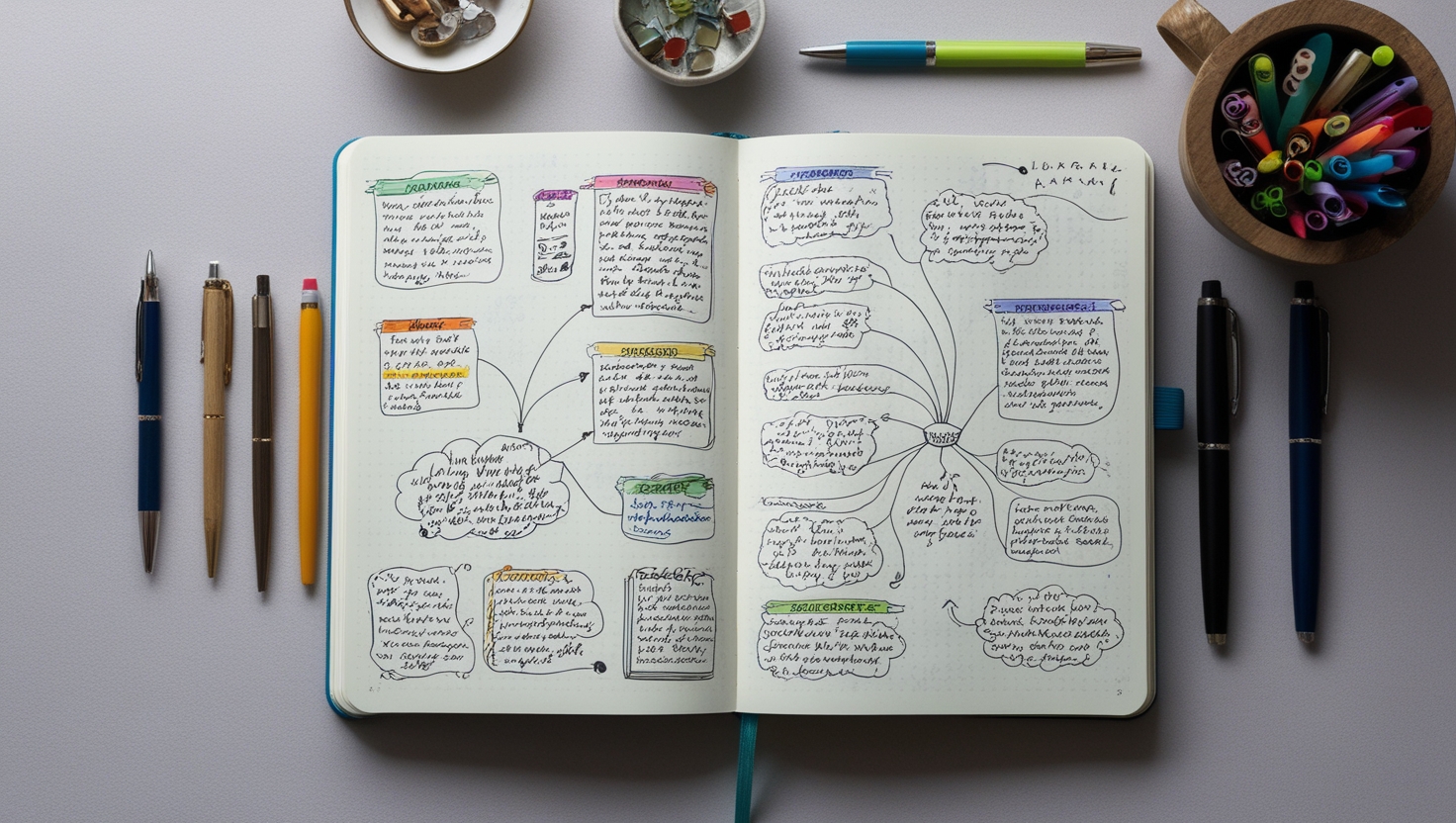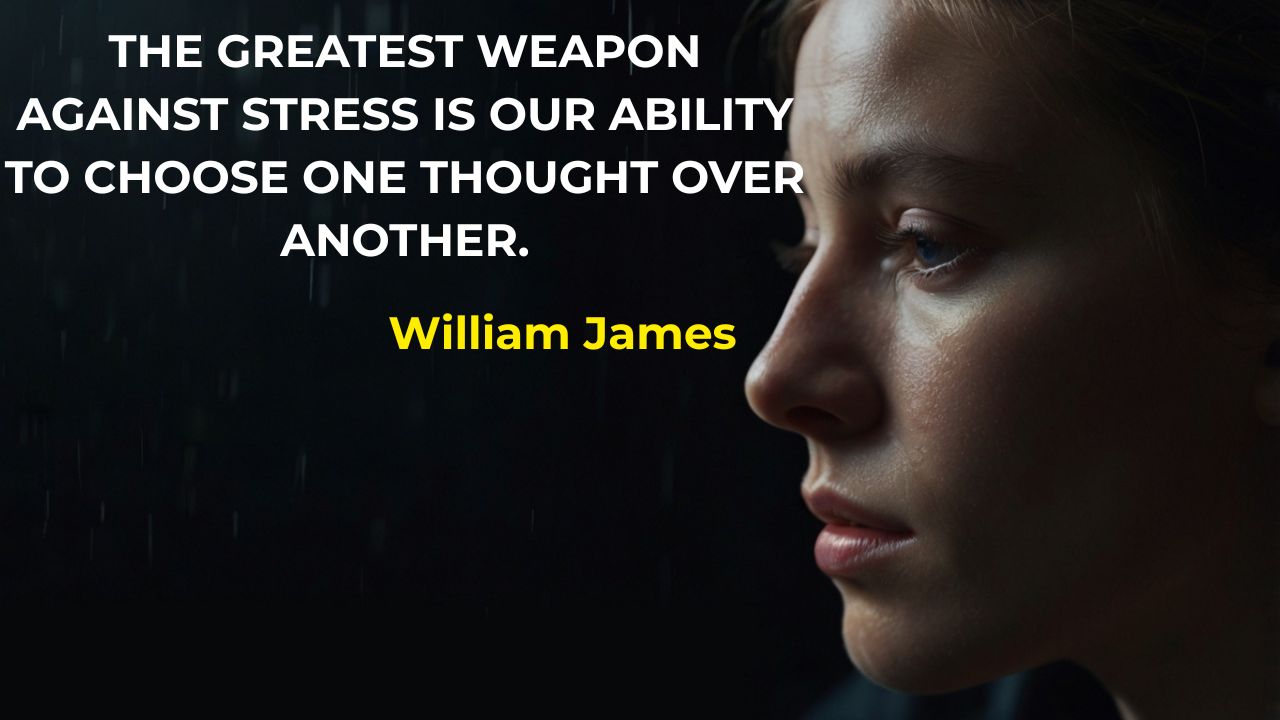Persistence vs. Perfectionism: When to Push Through and When to Let Go
We’ve all been there: a project you’ve been working on for what feels like forever, but you just can’t bring yourself to finish it. Maybe you’re stuck in the details, trying to make everything perfect, or you’re too afraid of making a mistake to move forward. The truth is, this kind of behavior can actually hold you back from reaching your goals. In these moments, it’s important to recognize the difference between persistence and perfectionism—and understand when to keep going and when to let go.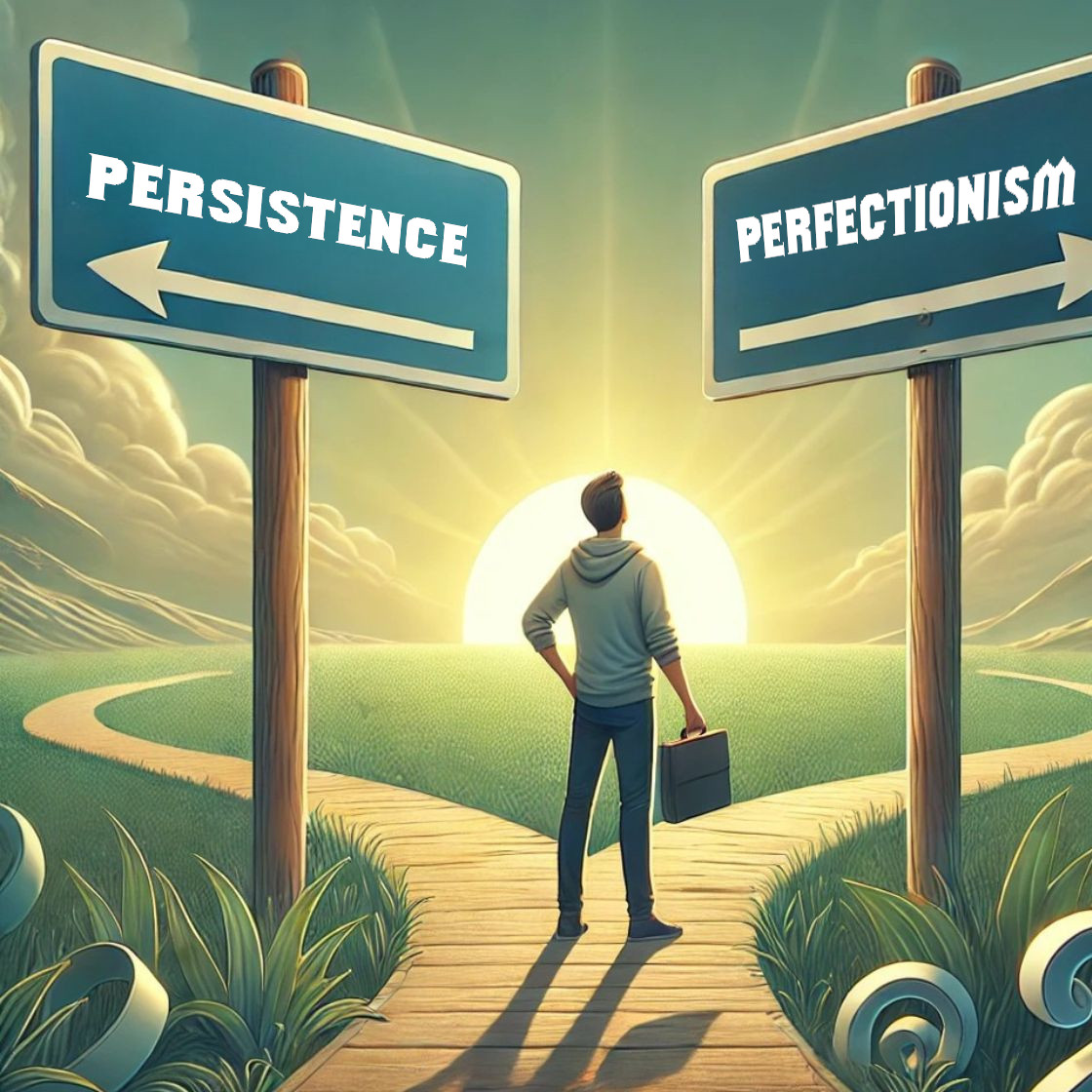
What’s the Difference Between Persistence and Perfectionism?
At first glance, persistence and perfectionism may seem similar. Both involve putting in effort and striving for success. However, the key difference lies in their focus and impact on your progress.
- **Persistence** is the ability to keep going despite challenges, setbacks, or difficulties. It’s about continuing to put in effort toward a goal, even if things don’t go perfectly. When you’re persistent, you focus on progress, not perfection. You’re okay with the bumps along the way and see them as opportunities to learn and improve.
- **Perfectionism**, on the other hand, is the need for everything to be flawless. Perfectionists often set unrealistically high standards for themselves and may refuse to finish a project until it meets those standards. This can lead to procrastination or, worse, never finishing the task at all because it’s “not good enough.” Perfectionism can become a barrier, stopping you from moving forward because you’re too focused on making things perfect.
Why Does Perfectionism Get in the Way?
Perfectionism can be paralyzing. It often stems from fear—fear of failure, fear of criticism, or even fear of not being “good enough.” Perfectionists tend to fixate on small details, constantly tweaking and adjusting, which keeps them from completing the task at hand. In their quest to make everything perfect, they lose sight of the bigger picture.
Here’s where the problem lies: perfectionism can actually keep you from making progress. If you’re constantly chasing perfection, you might never actually finish anything. It can also lead to feelings of frustration, self-doubt, and burnout, which only makes it harder to keep going.
When to Push Through: The Power of Persistence
In contrast, persistence helps you move past the discomfort of imperfection. If you’re working on a goal and things aren’t going as planned, persistence allows you to keep going despite the bumps along the way. It’s about progress, not perfection.
For example, let’s say you’re trying to start a new exercise routine. If you’re a perfectionist, you might hesitate to start because you fear you won’t be able to do it “perfectly.” You might overthink what kind of exercises to do, how to track your progress, or whether you’ll stick to the routine. This kind of thinking can stop you before you even begin.
But persistence tells you to just start, even if you’re not sure about every little detail. You might not get every workout right, but if you keep showing up, you’ll improve over time. It’s the act of continuing despite the imperfections that builds momentum and eventually leads to success.
When to Let Go: Knowing When Perfectionism Is Holding You Back
While persistence is key to making progress, there are times when perfectionism needs to be released. If you find yourself stuck in the pursuit of perfection, unable to finish a project or move forward with your goals, it’s important to step back and ask yourself: **Is striving for perfection helping me, or is it actually keeping me stuck?**
Here are a few signs that perfectionism might be holding you back:
- **You’re procrastinating**: Perfectionists often delay starting or finishing tasks because they’re worried it won’t be good enough. If you’re putting something off because you’re not sure how to do it perfectly, it’s time to let go of that mindset.
- **You’re stuck in the details**: If you’re endlessly tweaking something that doesn’t need to be perfect, like adjusting the wording of an email or redoing a presentation slide for the tenth time, you’re likely letting perfectionism stop you from moving forward.
- **You’re avoiding feedback**: Perfectionists often fear criticism because they feel it reflects their worth. But feedback is a tool for improvement, not judgment. If you’re avoiding feedback because you’re afraid your work isn’t perfect, you’re missing out on valuable opportunities to grow.
How to Find the Balance Between Persistence and Perfectionism
It’s important to find a healthy balance between persistence and perfectionism. Here are some practical tips to help you navigate this balance:
1. **Focus on the Big Picture**
When working toward a long-term goal, remind yourself that the journey is just as important as the destination. Small imperfections along the way are a natural part of the process. Focus on progress, not perfection.
2. **Set Realistic Expectations**
Instead of aiming for perfection, set achievable goals. Break larger tasks into smaller steps and celebrate progress along the way. Remember, perfection isn’t the goal—completion and learning are.
3. **Practice Self-Compassion**
Be kind to yourself when things don’t go as planned. Mistakes are opportunities for growth. When you make a mistake, don’t dwell on it. Reflect on what you can learn, adjust your approach, and keep moving forward.
4. **Know When to Let Go**
Recognize when perfectionism is preventing you from completing a task. If you’ve reached a point where additional adjustments won’t make a meaningful difference, it’s time to move forward. Done is better than perfect.
5. **Seek Feedback**
Don’t be afraid to share your work before it’s “perfect.” Feedback from others can help you see things from a new perspective and improve your work in ways you might not have thought of. It also helps you get out of the perfectionism trap and move forward.
Conclusion: Persistence Is the Key to Growth
The key to achieving long-term success lies not in perfection, but in persistence. While striving for excellence is important, it’s essential to understand when perfectionism is holding you back from making meaningful progress. By learning to balance persistence with a healthy attitude toward imperfection, you can keep moving forward, accomplish your goals, and grow along the way. Remember, **done is better than perfect**, and every step, no matter how imperfect, gets you closer to your ultimate goal.
- Audio Articles
- Audio Articles 1
- Audio Articles 2
- Audio Articles 3
- Audio Articles 4

7 Daily Disciplines That Transform Your Life
The power to act with intention, to align your actions with your values, and to move steadily toward a life of purpose—even on days you don't feel like it.
Read Full Article
How to Build Unbreakable Discipline
Discipline is built—habit by habit, choice by choice, day by day. And the most powerful kind? The kind that doesn’t crack under pressure. The kind that becomes part of who you are.
Read Full Article
Why Motivation Fails And Discipline Wins Every Time
We all love the feeling of motivation—that surge of energy, that rush of inspiration that makes everything seem possible. But here’s the problem: motivation is unreliable. It’s emotional. It comes and goes. And if your goals rely on you “feeling like it,” you’re already in trouble.
Read Full Article
Discipline Over Desire
Desire is loud. It burns bright, talks fast, and loves to dream. But desire alone doesn't achieve much. Every person has desires. Very few have the discipline to bring them to life.
Read Full Article
The Science of Sticking
If you've ever tried to build a new habit, you've probably heard that it takes 21 days. This number gets thrown around so often that it feels like scientific fact.
Read Full Article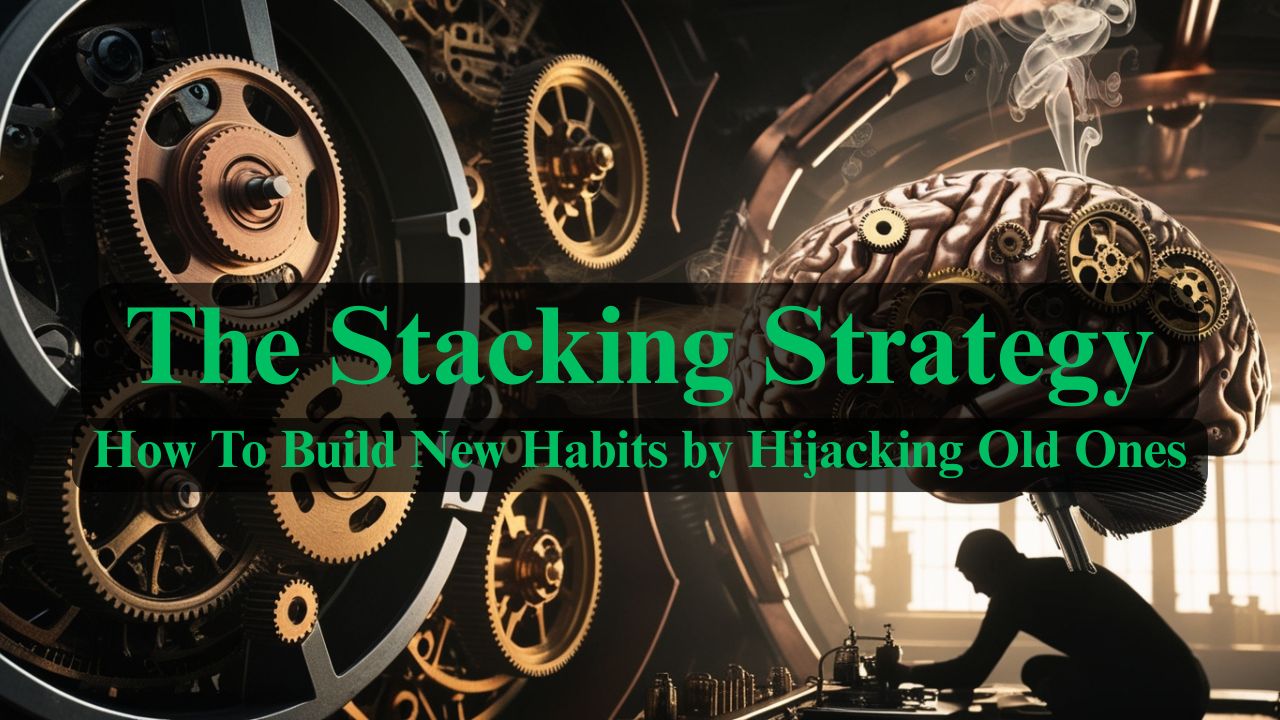
The Stacking Strategy
What if I told you that the habits you already have—even the ones you consider "bad"—could become the secret weapons for building the habits you want?
Read Full Article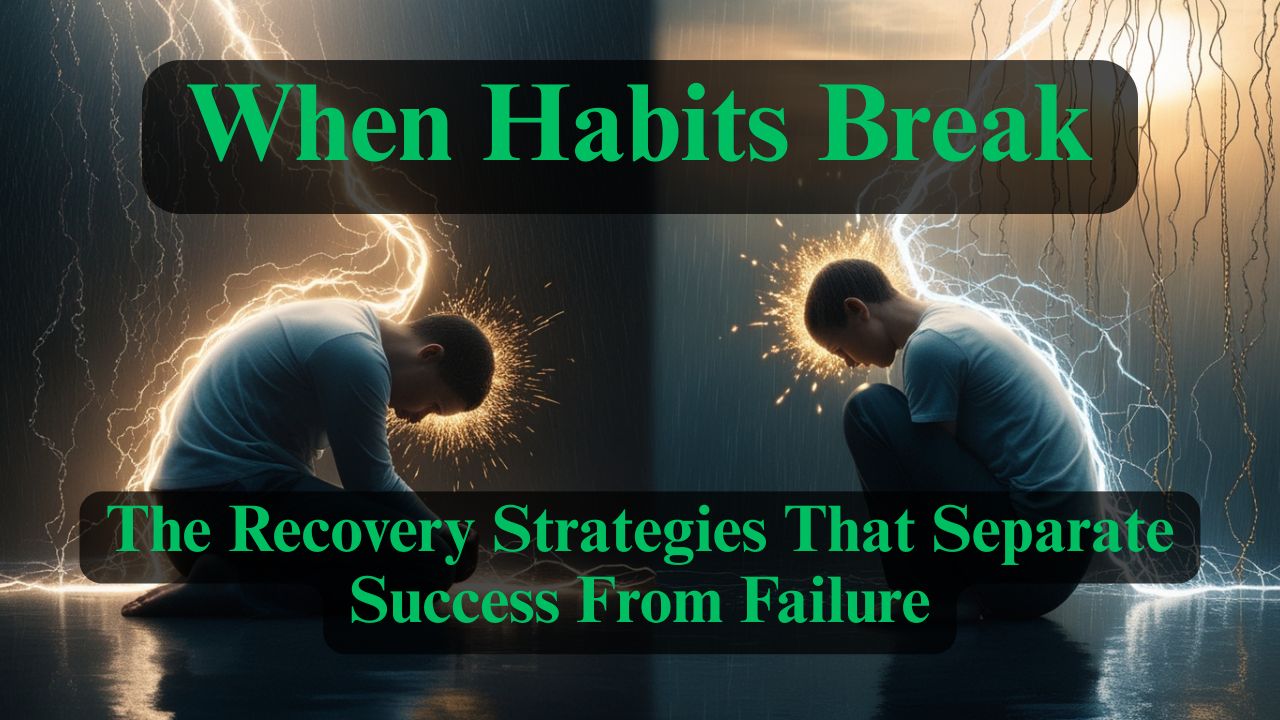
When Habits Fail - The Recovery Strategies That Separate Success From Failure
Here's what nobody tells you about building habits: you will fail. You'll miss days. You'll fall off track. You'll have weeks where everything falls apart.
Read Full Article
The Ultimate System - Designing a Life Where Good Habits Are Inevitable
You've learned to recognize habits, understand their formation timeline, stack them strategically, and recover from setbacks.
Read Full Article
